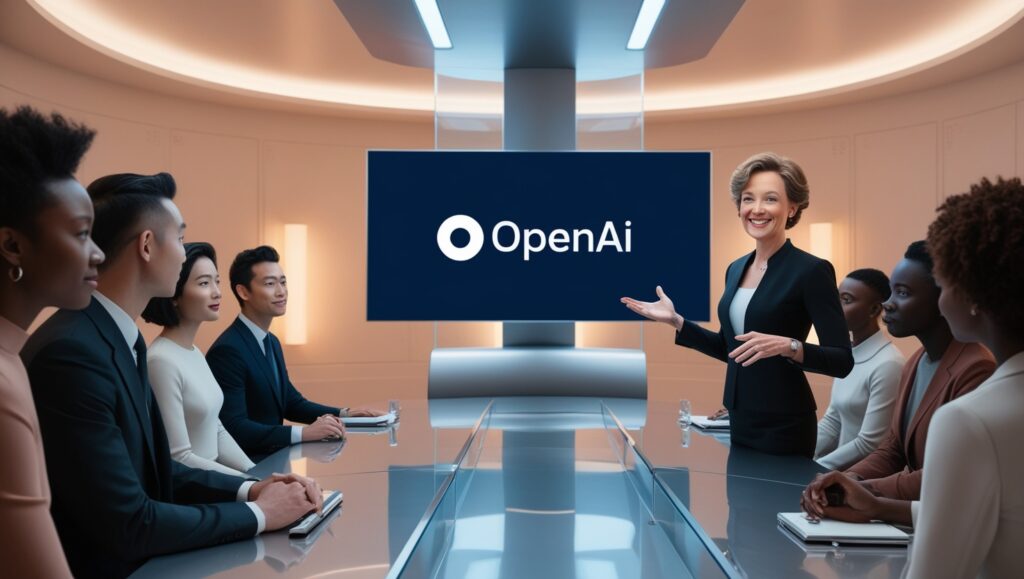Data centers are being constructed almost everywhere these days. The vast, windowless structures serve as the physical engines of the cloud and the internet; more are being built now than in the past, and they are larger and more voracious than before. Ten megawatts of electricity used to power a standard center; these days, centers are being constructed to draw ten times as much. Around 456 billion Wikipedia articles, or 10.1 zettabytes, of data could have been stored in all of the world’s data centers last year. Furthermore, the capacity of data centers worldwide is anticipated to double by 2027 due to the development of artificial intelligence, which demands enormous amounts of data and electricity. If you don’t now reside close to a data center, you soon will.
However, the demand for “hyperscaled” data centers isn’t just driven by cloud computing and AI. Just three businesses—Amazon, Google, and Microsoft—own around 65% of the capacity in global centers. Similar to the old railroad tycoons, they are vying for market dominance because they know something that the rest of us don’t. Large digital warehouses are not the exclusive function of data centers. Almost all other companies in the world rely on these crucial infrastructure technologies to function.
These days, it’s simpler and less expensive for businesses to just rent computing services from Amazon Web Services, Google Cloud, or Microsoft Azure when they require networking, security, data processing, platforms, you name it. These businesses may supply more services, as well as more storage and capability for number crunching, the more data centers they own. By attempting to control the market for data centers, they are not only building larger data warehouses but also hoping to serve as a one-stop shop for all things technological that a business may require.
This is much more valid for AI startups. An inventive upstart essentially has to go via Big Tech to obtain the large language models needed to train and operate generative artificial intelligence. Currently, the largest tech companies are providing venture capital to such startups in exchange for “credits” that they can use to access the company’s cloud. Microsoft, for instance, funded a significant portion of its investment in OpenAI by granting the startup access to its data centers. It’s a rich inducement to become a part of an exclusive community.
According to economist Cecilia Rikap, who authored the recent research “Dynamics of Corporate Governance Beyond Ownership in AI,” this is where the actual action occurs. “As AI usage increases, so does cloud consumption, which means that these businesses will profit more financially and have more digital technology entangled and mingled within their infrastructure.
What concerns many economists and legal specialists is that entanglement. The issue is known by regulators as “locking in.” Switching data ecosystems is not like relocating your office to a new building; for example, the programming interfaces from Microsoft Azure don’t simply transfer to Amazon Web Services. Entering one is simple, but much like the Hotel California, you are stuck there forever. A digital giant has virtually guaranteed itself some control over a young company that could become a rival once it grants access to its cloud services and extensive language models. A congressional subcommittee issued a 450-page study in 2020 that included a warning that “market leaders benefit from early-mover advantage coupled with network effects and high switching costs that lock-in customers.” In large part, Big Tech is rushing to create data centers in order to get the keys to the upcoming AI kingdom.
Startups have benefited from the rise of data centers in the short run. Matthew Wansley is a law professor at Yeshiva University who specializes in competition and regulation. “Until recently, the perception among academics was that the rise of cloud computing was great for startups and innovation,” says Wade. “In the past, building your own servers was a requirement for startups. That’s a substantial upfront set expense.
That is no longer accurate. Since 2006, when Amazon first opened its cloud, the cost of cloud computing services has decreased annually. And as a group of economists pointed out, it completely collapsed in 2014 when Google and Microsoft began promoting their aggressive pricing. Prices for AWS databases decreased by 11% between 2010 and 2014. They fell by 22% in the ensuing two years.
Additionally, cloud computing made it simpler for businesses to obtain capital. A “spray and pray” strategy was adopted by venture capitalists, whereby they made bets on numerous companies while investing a smaller sum of money in each. Reducing their direct engagement in company management, they also trusted the market to separate the winners from the losers.
For AI startups in particular, the entire scene has been fantastic. “Scalability and compute power that the larger service providers offer could be accessible to smaller companies like us,” says Jonas Jacobi, cofounder and CEO of the fintech startup ValidMind. “While a few major companies dominate the AI market, startups are also making an effort to compete with them. They are only able to do so because of the cloud providers.”
To avoid being restricted to a single provider, Jacobi advises writing code that is compatible with all three. The key is to remain “neutral to the tech stack,” he argues. It is true that a major tech company may potentially acquire your program and develop their own version. Research indicates that, like it did with the Elastic search engine, Amazon has made it routine practice to “engulf” the goods of tiny, open-source rivals and rebrand them as part of its own portfolio of services. But as a startup, that’s just part of the experience, says Jacobi. “It’s just up to us as a company to be faster and nimbler.”
Economists caution that being nimble won’t be sufficient in the long run. AI startups will inevitably lose out to the big giants that own the data centers in the race to develop foundational tech, or the “key complementary assets” of the company. Rikap claims that AI is a general-purpose technology. It’s being used on all fronts. The dominance of just three businesses, however, will determine the kind of AI we receive and do not receive. It is a monopoly of the mind. They are in charge of knowledge and data.” Companies such as Google, Amazon, and Microsoft can effectively show preference by delivering better rates and cheaper services to companies in which they have a larger stake by locking startups into their systems.
Economists caution that AI companies will eventually lose out to the internet behemoths that own the data centers.
Additionally, Big Tech is compelled to cooperate in order to exchange information and safeguard their shared interests, according to Rikap’s research on their increasing dominance over data centers. In a collaboration with Aalborg University economist Bengt-Åke Lundvall, Rikap observes that academics from Microsoft, Google, and Amazon regularly had coauthors working for rival companies on their technical and scholarly publications. It’s true that the field of computer science is now small. Yet according to Rikap, co-authorship is “a pure way to tell they are collaborating and know what each other are doing” and is a sign of anticompetitive behavior.
As long as innovation prevails over monopolization, there is still cause for optimism. This healthy competition between Amazon, Google, and Microsoft on features and price benefits all parties. Furthermore, the Big Three are occupied with accusing each other in Europe, where authorities are pursuing a more assertive stance toward technology in general and cloud computing specifically. An Amazon-affiliated trade association filed an antitrust complaint against Microsoft over its cloud computing licenses, while a Google Cloud executive recently criticized Microsoft as a “monopoly” and a “walled garden.” There is a tiny window of opportunity for quicker, more nimble competitors as the corporations compete for market share because they aren’t yet moving in lockstep.
Maturity in the technology industry also tends to cause corporations to charge other innovators instead of striving to innovate themselves. That is what economists refer to as “rent-seeking behavior,” and it closely resembles the cloud computing and data center operations carried out by Amazon, Google, and Microsoft.
So how can we prevent Big Tech from using data centers as a means of stifling innovation? Scholars mention Google, which provides companies with a more benevolent form of collaboration. “The Google Cloud Division partners with promising database start-ups, contributes to open-source projects, and collaborates with open-source foundations,” two academics said recently. The “architecture of participation,” as they put it, is what allows Google to make money while encouraging the development of new businesses and concepts.
Perhaps more importantly, the Federal Trade Commission has mandated that the Big Tech corporations provide information about their AI efforts, citing data centers as a hazard. Today’s authorities may very well catch up to the future, technological tangles of cloud computing, just as new laws finally caught up to the pricing practices of the railroads in the 1880s. A rationale for believing this: The primary writer of the 450-page House subcommittee report concerning Big Tech’s anticompetitive conduct was Lina Khan, an attorney. She is now the FTC’s tenacious head.








